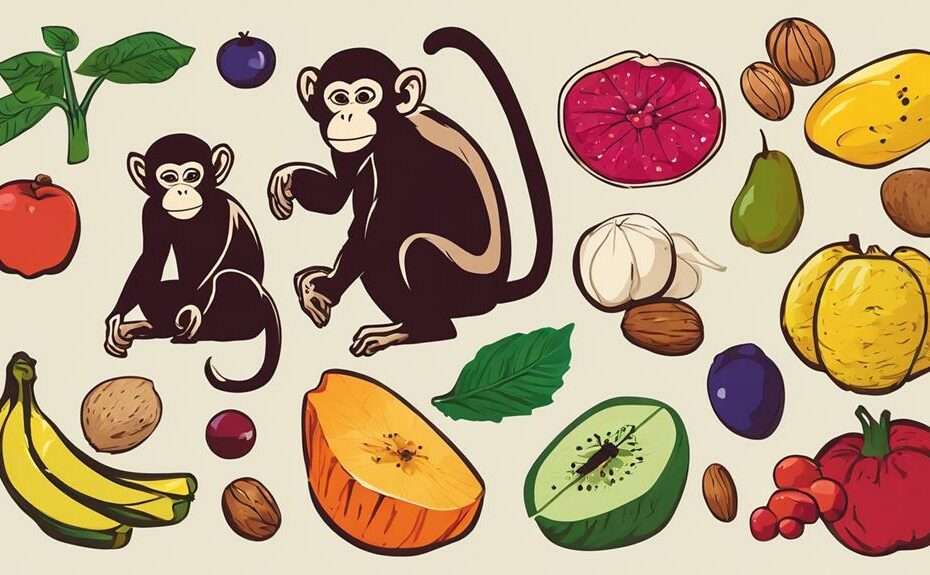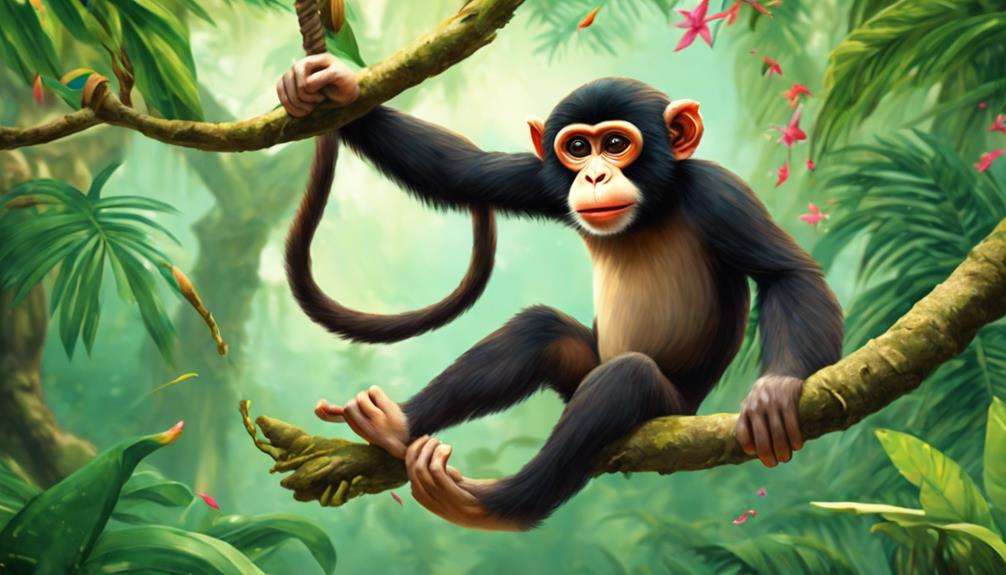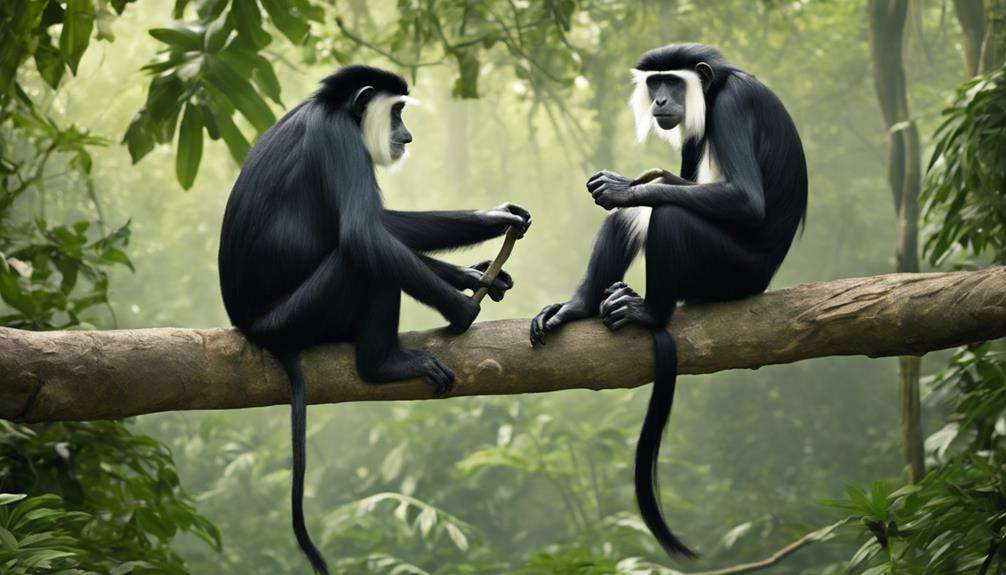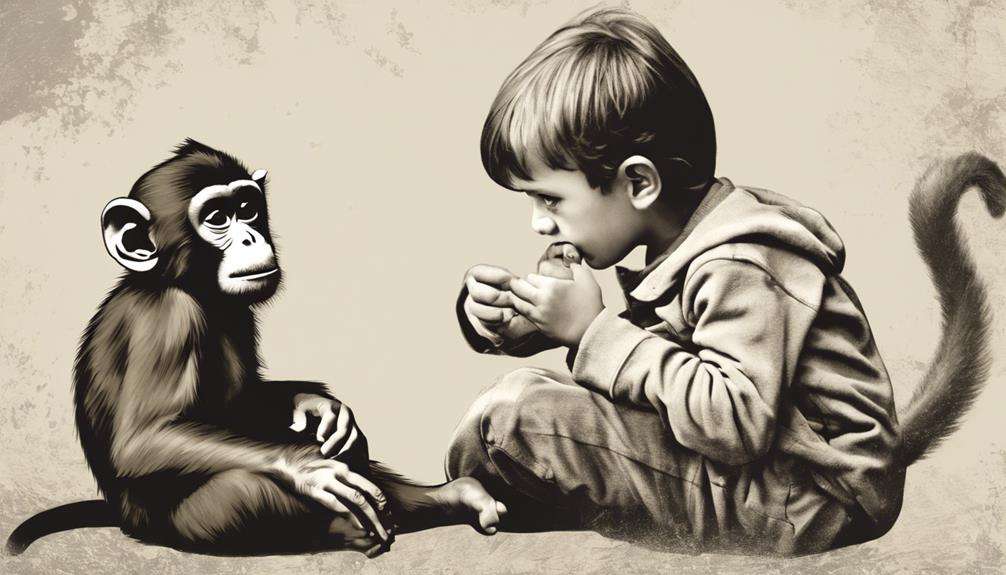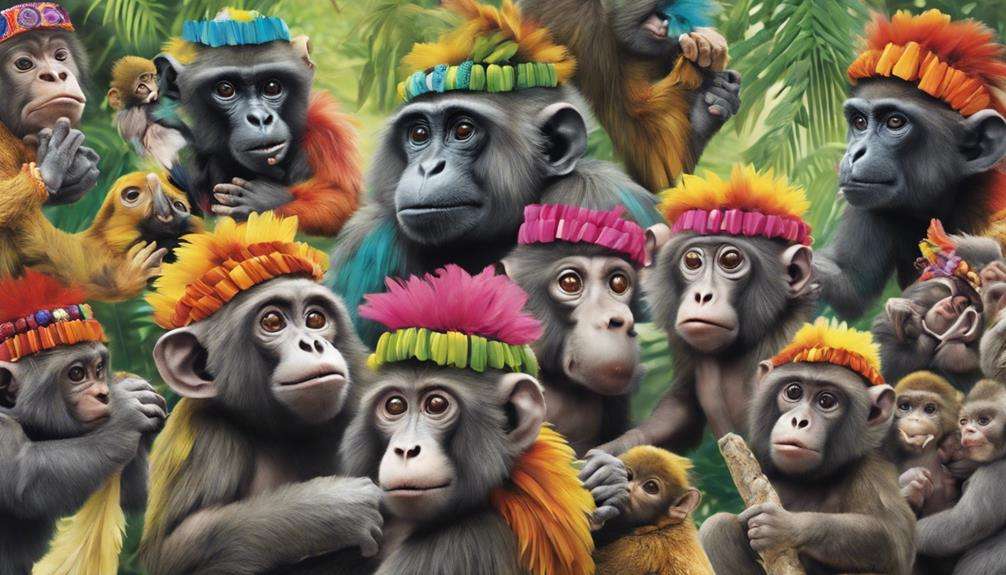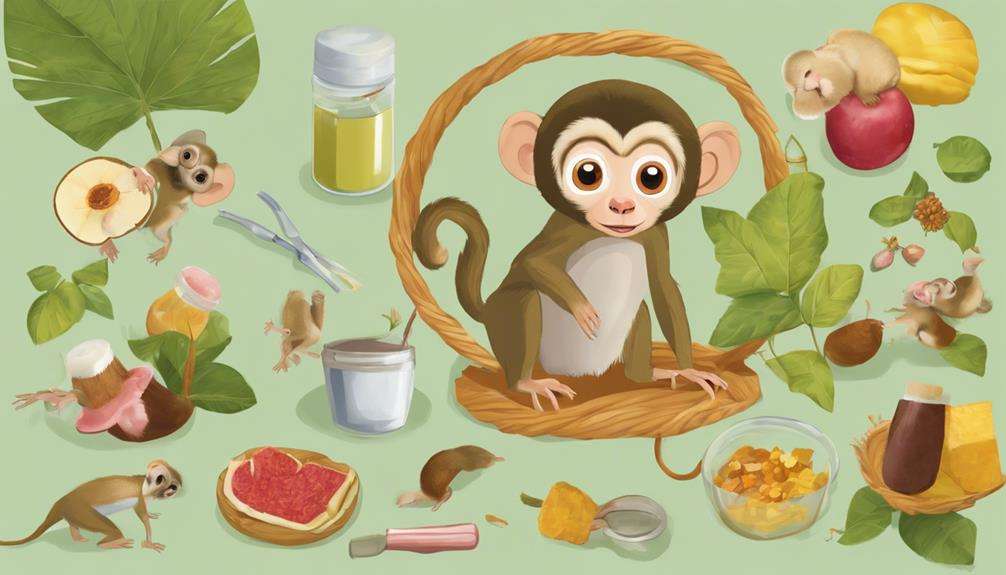When considering what diet to feed your pet monkey, did you know that nearly 90% of a monkey's diet in the wild consists of fruits and vegetables? Understanding the dietary needs of these intelligent creatures is essential to their overall health and well-being.
By providing a balanced and nutritious diet, you can help prevent potential health issues and guarantee a happy and thriving monkey companion.
Curious to learn more about the best diet for your pet monkey and how it can positively impact their quality of life?
Key Takeaways
- Offer a balanced mix of fruits, vegetables, nuts, and seeds to mimic a natural diet.
- Ensure hydration with clean water and provide roughage sources like leaves for fiber.
- Prevent nutritional deficiencies by rotating food options and consulting a veterinarian for advice.
- Emulate natural foraging behavior to promote mental stimulation and overall well-being.
Nutritional Needs of Pet Monkeys
What specific nutritional requirements must be met to guarantee the health and well-being of your pet monkey?
Pet monkeys, like all primates, require a well-balanced diet to thrive. When considering the diet of your pet monkey, it's essential to include a variety of foods to make sure they receive all the necessary nutrients. Protein sources play a critical role in the diet of pet monkeys, with options such as cooked meats, insects, and eggs providing essential amino acids for their overall health.
Fruits are an important component of a monkey's diet, offering important vitamins and minerals. Opt for fruits low in sugar like berries and apples to prevent health issues related to excessive sugar intake. Additionally, vegetables, especially leafy greens, should be included to provide a diverse range of nutrients.
Nuts and seeds can serve as nutritious snacks for pet monkeys, supplying them with essential fats and additional nutrients to support their well-being. Balancing these food groups ensures that your pet monkey receives a thorough and wholesome diet.
Fresh and Natural Food Choices
When considering fresh and natural food choices for your pet monkey, focus on offering a variety of fruits, vegetables, nuts, seeds, and insects to ensure a well-rounded nutritional intake.
Opt for low-sugar fruits like berries and apples to provide essential vitamins without excessive sugar content. Incorporating leafy greens into your pet monkey's diet is important for supplying essential nutrients and minerals necessary for their well-being.
Ideal Dietary Components
How can you guarantee the peak health and nutrition of your pet monkey through a diet rich in fresh fruits, nuts, seeds, and leaves?
As a primate owner, it's important to provide your pet monkey with a balanced diet that includes a variety of fresh and natural food choices.
Fresh fruits like bananas, berries, and mangoes offer essential vitamins and natural sweetness, while nuts, seeds, and leaves cater to your monkey's natural foraging instincts.
By incorporating a mix of fruits, vegetables, nuts, and seeds, you can guarantee that your pet monkey's nutritional needs are met.
These fresh and natural food choices not only contribute to their overall health and well-being but also help replicate a more natural diet, promoting their satisfaction and essentiality.
Nutritional Balance Essentials
To guarantee peak health and nutrition for your pet monkey, prioritize a diet rich in fresh fruits, nuts, seeds, and leaves to maintain essential nutritional balance. Primate diets require a balanced diet that includes fresh fruit and vegetables to provide necessary vitamins and minerals.
Incorporating natural food choices like nuts and seeds ensures a diverse nutrient intake, supporting your pet monkey's dietary needs. Fresh foods not only contribute to meeting the nutritional balance required by pet monkeys but also help mimic their natural diet in the wild.
Importance of Roughage in Monkey Diets
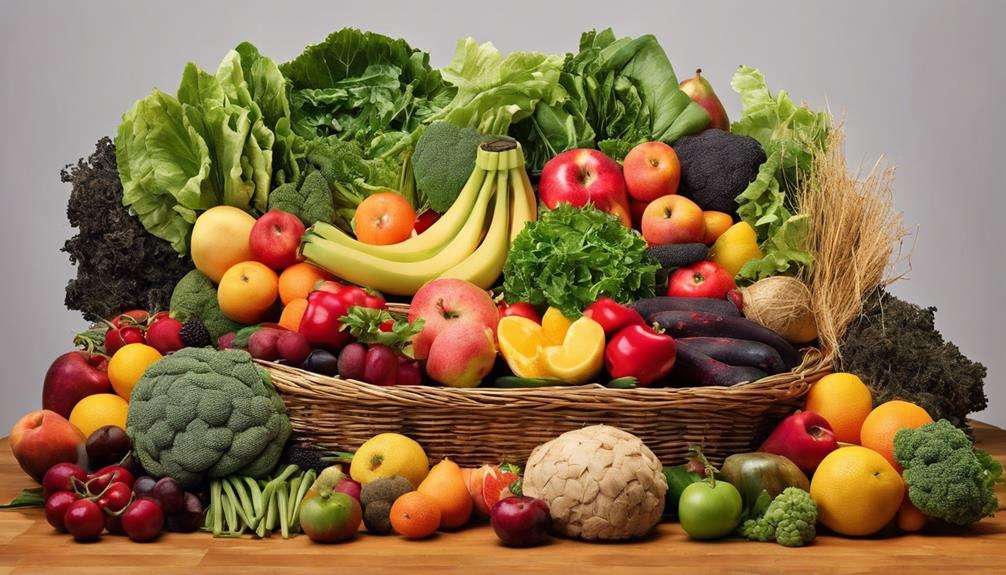
In monkey diets, the presence of roughage is essential for preventing diarrhea and maintaining excellent digestive health. Including roughage like plant materials in monkey diets supports dental health by preventing dental problems that can arise from consuming dairy products.
Roughage sources such as leaves, vines, and twigs offer fiber important for primate digestion and overall health. Providing monkeys with access to safe plants for roughage is important to prevent toxicity issues in their diet. These plant materials aid in proper digestion, making sure that monkeys can efficiently extract nutrients from their food while promoting gut health.
Hydration: Water for Pet Monkeys
For peak health and well-being, ensuring your pet monkey has access to clean water for hydration is paramount. Pet monkeys, much like humans, require adequate hydration to maintain overall health.
It's essential to provide fresh water daily in a gravity feed water bottle attached to their enclosure, allowing easy access for the monkeys. Monitoring their water intake is vital, especially as they age, as some may require increased hydration.
It's important to avoid offering juices, sodas, or flavored drinks to pet monkeys and stick to clean water as their primary source of hydration. Dehydration can pose serious health risks to pet monkeys, underscoring the importance of ensuring they've access to clean water throughout the day to prevent any adverse health effects.
Foods to Avoid Feeding Your Monkey
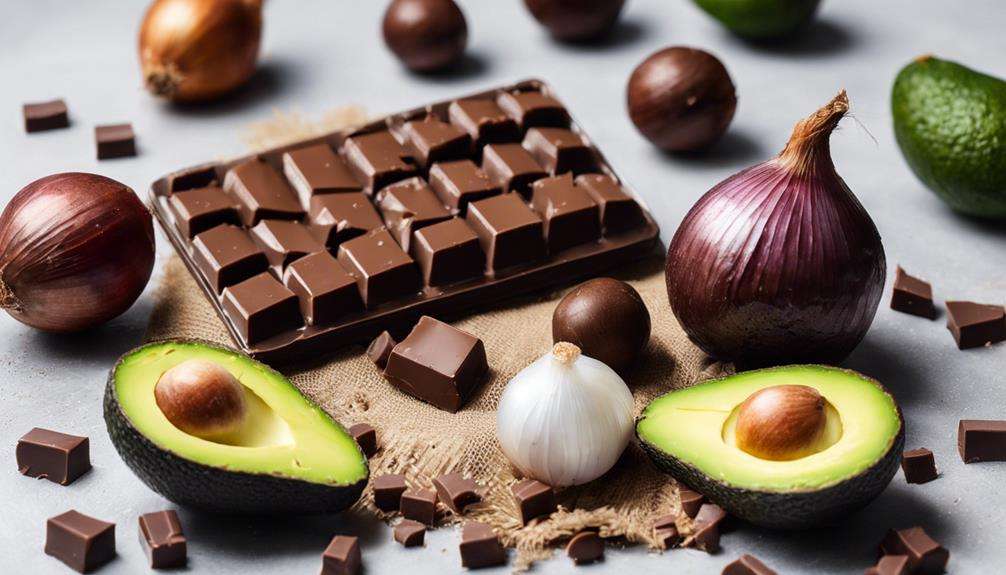
How can certain foods harm your pet monkey's health and well-being?
It's important to avoid feeding your monkey foods that contain caffeine, alcohol, or chocolate as these can be toxic to them.
Additionally, foods high in salt, sugar, and preservatives should be kept away from your monkey to prevent potential health issues.
Be cautious of pits or seeds in fruits as they may contain toxins that can be harmful to monkeys.
Dairy products should also be avoided as they can lead to digestive problems in monkeys.
Remember that human foods like candy and chips aren't suitable for monkey consumption and should be kept out of their reach.
Balancing Your Monkey's Diet
Certain foods can harm your pet monkey's health and well-being, making it important to maintain a balanced diet that includes a variety of fruits, vegetables, nuts, seeds, and protein sources. To meet your monkey's nutritional needs, offer a mix of small portions of different fruits like bananas, berries, and apples, alongside vegetables such as leafy greens, carrots, and bell peppers. Protein sources like cooked lean meats, eggs, and nuts are essential for muscle development and overall health. Consulting with a veterinarian or primate nutritionist can help tailor the diet to your specific monkey's requirements.
Making sure the diet is well-rounded by providing a variety of foods to prevent deficiencies. Monitoring portion sizes is critical to prevent obesity or malnutrition; adjust the amounts based on your monkey's activity level and individual needs. Avoid processed foods high in sugar and salt, as these can lead to health issues in your pet monkey.
Unique Dietary Considerations for Monkeys
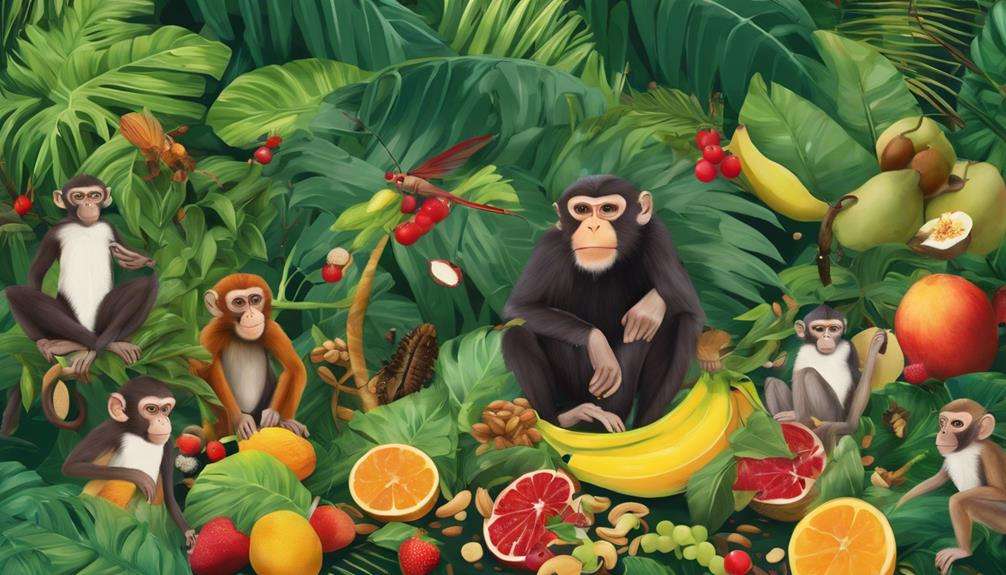
When considering unique dietary considerations for monkeys, it's important to understand their specific nutritional needs.
Monkeys have an omnivorous diet, which means they require a variety of food options to thrive.
Providing a balanced mix of fruits, vegetables, nuts, seeds, and protein sources is essential for meeting their dietary requirements.
Monkey Nutritional Needs
Monkeys consistently require a diverse diet comprising fruits, vegetables, nuts, seeds, and protein sources to meet their unique nutritional needs. As primates, they need a balanced diet to guarantee ideal health.
Protein sources such as cooked meats, insects, and eggs are essential for meeting their dietary requirements. It's important to avoid feeding monkeys foods high in salt, sugar, or MSG, as these can lead to health issues.
A well-rounded diet is key to preventing diseases like Rickets, which can result from nutrient deficiencies in pet monkeys. Remember to consult with a veterinarian for specific dietary recommendations tailored to your pet monkey's species and individual needs to promote their overall well-being.
Omnivorous Diet Options
To guarantee top nutrition for your pet monkey, it's important to provide an omnivorous diet that includes a balanced mix of plants and meat. Pet monkeys thrive on a diet that consists of fruits, vegetables, cooked meats, and complete primate pelleted food.
Protein sources like cooked meats are important for meeting their dietary requirements. It's necessary to offer a variety of fruits, vegetables, nuts, seeds, and protein sources throughout the day to make sure they receive all necessary nutrients. However, remember to avoid high salt foods, as they can be harmful to your monkey's health.
Importance of Variety
Guaranteeing a diverse and balanced diet is crucial for meeting the unique dietary considerations of pet monkeys. Monkeys' food requirements vary based on species, underscoring the need for variety to cater to specific dietary preferences.
Emulating their natural foraging behavior, a mix of fruits, vegetables, nuts, seeds, and protein sources should be included to provide essential nutrients and prevent deficiencies. Rotating food options regularly not only prevents boredom but also promotes healthy eating habits.
Frequently Asked Questions
What Is the Best Food for Monkeys?
For monkeys, the best diet includes a variety of tropical fruits, leafy greens, nuts, seeds, insects, protein supplements, and vitamin-rich foods. A balanced diet with natural foraging opportunities guarantees peak health and well-being.
What Is a Monkey's Diet?
For a monkey's diet, focus on fresh fruits, leafy greens, nuts, seeds, insects, and protein sources. Assure adequate vitamin supplements and water intake. Be mindful of dietary restrictions, avoiding high salt, sugar, or MSG foods to maintain their health.
How Often Should I Feed My Monkey?
You should feed your monkey twice daily to maintain a healthy feeding schedule. Consider their age, weight, and dietary needs when planning meals. Offer nutritious snacks, control portions, and monitor their water intake for ultimate digestive health.
Are Monkeys Hard to Take Care Of?
Taking care of monkeys requires dedication and knowledge. Understanding their complex social needs, diet, and health care is vital. Proper housing, socialization, and mental stimulation are essential. With commitment, monkeys can thrive in your care.
Conclusion
To summarize, guarantee your pet monkey's diet is balanced with a mix of fruits, vegetables, nuts, seeds, and protein sources to meet their omnivorous nutritional needs. Incorporate low-sugar fruits, leafy greens, and nuts for essential vitamins and minerals.
Avoid high-salt or MSG foods to prevent health issues. Consult with a veterinarian for personalized dietary recommendations. Remember, a well-balanced diet is key to keeping your monkey healthy and happy.
